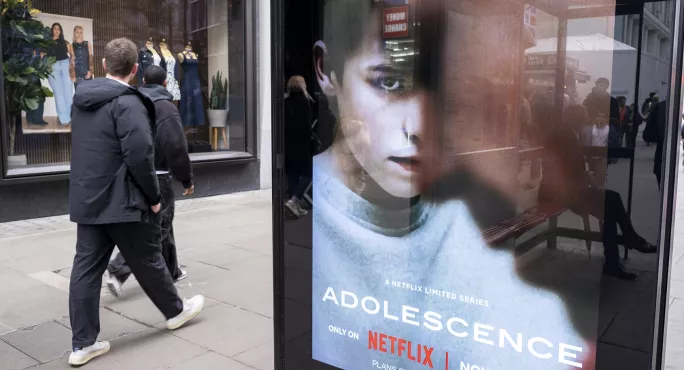Thereâs no denying that the Netflix blockbuster Adolescence has struck a chord in society.
Itâs paved the way for a valuable open discourse on the manosphere and the toxic diet being fed to young people via social media.
Parents have watched the four-part TV series about young killer Jamie in horror, forced to explore the very worst consequences of what a whole generation could be exposed to in the âsafetyâ of their own rooms.
Jamieâs guilt is obvious from the start - it isnât âDid he do it?â but âWhy did he do it?â - and the failings are all around him. The struggle of his parents trying to live their lives in the shadow of horror is the focus of the final episode, with his mumâs words âWe could have done moreâ resonating with a generation of busy parents.
The portrayal of teachers in Adolescence
But as a teacher in a secondary school in the North of England, it was episode two that really made me sit up.
The school attended by âtypicalâ suburban teen Jamie is presented as what can only be described as chaotic - a hotbed of tensions and prejudices in which teenagers brazenly flouted rules and are either glued to their phones or watching a video in lieu of any teaching.
Worse, the adults in supposed authority are presented as, at best, disorderly and weak and, at worst, disaffected and downright unprofessional.
TV series are inevitably going to draw on the margins. Who wants to turn on the TV to see a teacher on top of their planning, delivering pertinent and engaging PSHE form time and then settling down to engage in some CPD?
From the smoke fug of the staffroom in Grange Hill to, more recently, the shiny corridors and perfect pitches of Truham in Heartstopper, schools are ripe for drama. But isnât it time to move on from the archetypes?
Adolescence has all the teacher caricatures in there: the weak and well-meaning older female teacher, clueless in the face of marauding teens; the dishevelled and lacklustre new teacher, already disillusioned and resigned in the classroom; the aggressive authority figure bawling at the children; the well-meaning, broken âmumsyâ counsellor failing to contain the distressed best friend of the victim.
Turn to any school-based TV drama and you find the same: the plotting teachers throwing each other to the dogs in Waterloo Road, the self-centred and incapable in Bad Education or - God forbid - the predatory and deviant in Teachers.
When you set a TV drama in a school, all too often the institution itself becomes the villain. Itâs just TV so does it matter? Well, yes it does.
The wrong message
The majority of the adult population do not experience first hand the inner workings of a school or fully comprehend the complex roles that teachers now occupy: we donât just provide a worksheet, threaten an impending exam and stalk off to the staffroom for the latest gossip and coffee fix.
We are actively counselling, coaching, mentoring, nurturing and in some cases effectively parenting those in our care.
This requires skill, adaptation and, above all, professionalism on a minute-by-minute basis as we become the models of behaviour that our young people follow. And by and large, they do follow: most schools have enabled the majority of pupils to respect teachers and, by extension, the learning environment. Itâs time for the wider world to catch on.
Negative portrayals of teachers in the media matter because we need all stakeholders on side for schools to be effective. If parents and the public are fed a line of laziness, powerlessness and ineptitude, they start to believe it.
The well-oiled news machine has been quick to pick up on the proposed changes to the curriculum to ensure that ideas of toxic masculinity are challenged and eradicated. But once again, this seems to be presented as a new thought, as though schools werenât doing this anyway.
Itâs time to switch the narrative. Itâs time to show just how hard schools are working to engage, foster and grow our young people. And our efforts matter and do change lives - maybe not in a Netflix blockbuster kind of way but in an ordinary, everyday way.
Lucy Taylor is a key stage 5 secondary teacher in North of England
For the latest education news and analysis delivered every weekday morning, sign up for the Tes Daily newsletter





